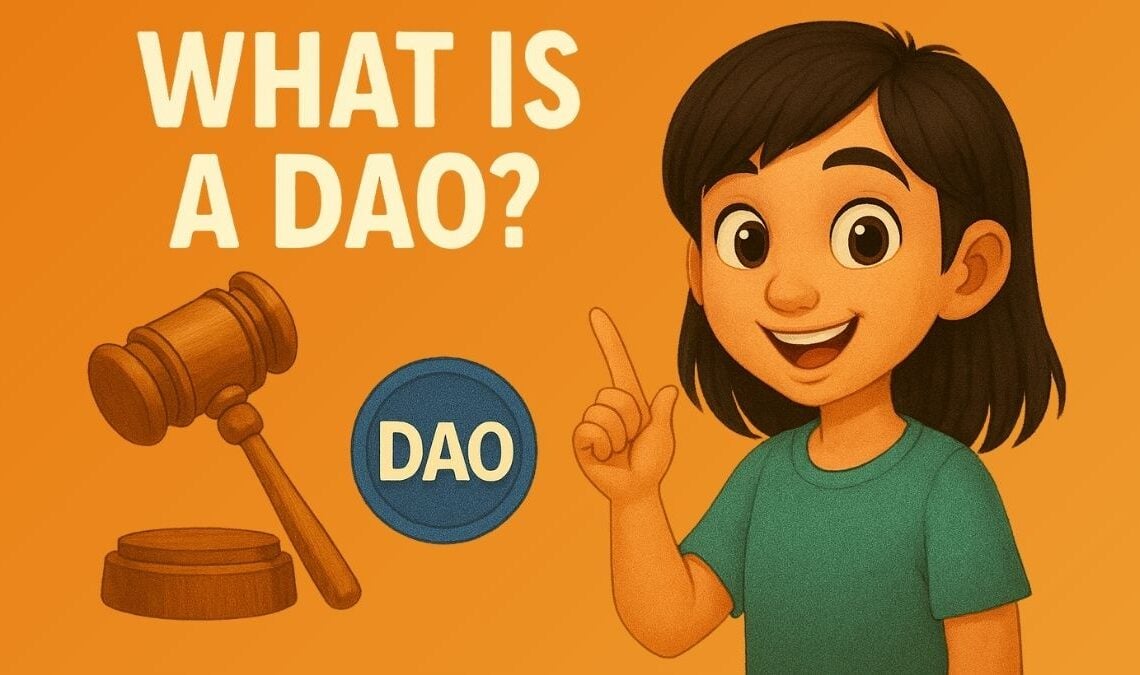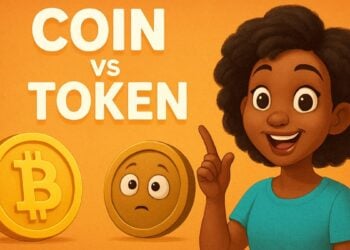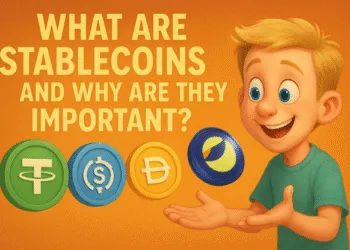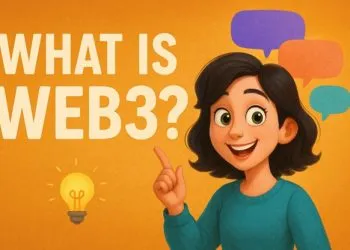DAOs, or Decentralized Autonomous Organizations, are quickly gaining attention in the Web3 world—but what are DAOs exactly, and why do they matter? In this guide, we’ll explore how DAOs work, why they represent a revolutionary step in digital governance, and what you need to know before getting involved.
Table of Contents
ToggleWhat Are DAOs? A Simple Explanation
A DAO (Decentralized Autonomous Organization) is a type of organization governed by smart contracts on a blockchain. Unlike traditional companies with centralized leadership, a DAO allows decisions to be made collectively by its members, using a voting system powered by tokens.
In other words, DAOs replace boards of directors and executive teams with code and community governance. All rules and actions are recorded on-chain, ensuring transparency and preventing unilateral control.
How Do DAOs Work?
DAOs function through a combination of smart contracts, blockchain protocols, and governance tokens:
- Smart contracts define the rules of the organization—what actions can be taken, who can vote, how funds are managed.
- Governance tokens give users the ability to vote on key decisions, such as budget allocations, partnerships, or protocol upgrades.
- Proposals and voting allow members to suggest changes and make collective decisions. Proposals are passed if they receive a certain threshold of token-weighted votes.
Once a proposal is approved, the smart contract executes it automatically—no human intermediaries needed.
Key Benefits of DAOs
DAOs offer several advantages over traditional organizational models:
- Transparency: Every decision, transaction, and rule is visible on-chain.
- Community ownership: Power is distributed among token holders.
- Borderless participation: Anyone can join and contribute from anywhere in the world.
- Immutable governance: Rules are enforced by code, not by individuals.
This model fosters trust, reduces overhead, and aligns incentives across a global community.
Real-World Examples of DAOs in Action
DAOs are already being used across different sectors of the crypto space:
- Protocol DAOs: Like Uniswap DAO, where token holders vote on protocol upgrades and treasury spending.
- Investment DAOs: Like The LAO, which pools capital to fund early-stage crypto startups.
- Social DAOs: Communities like Friends with Benefits (FWB) focus on culture, events, and networking.
- Gaming DAOs: Guilds such as Yield Guild Games manage assets, coordinate players, and make ecosystem decisions.
Each DAO operates differently, but all rely on collective decision-making and blockchain transparency.
Why DAOs Matter for the Future of Web3
As the Web3 ecosystem grows, DAOs are becoming a critical infrastructure layer. They allow decentralized communities to scale, fund development, and make coordinated decisions without relying on traditional corporate models.
DAOs also challenge the notion of employment and participation. Contributors may earn tokens or rewards without ever signing a contract—creating a new model of decentralized work and ownership.
In 2025, DAOs are expected to play a growing role in governance, finance, media, and even real-world politics, offering a radically new way to organize people and capital.
Final Thoughts: Are DAOs the Future of Organizations?
Understanding what are DAOs is essential for anyone exploring crypto, DeFi, or Web3 in 2025. While the concept is still evolving, DAOs offer a bold alternative to centralized control—built on transparency, automation, and global collaboration.
Whether you’re a builder, investor, or curious learner, DAOs represent one of the most promising use cases for blockchain technology. As adoption grows, their impact on how we work, govern, and invest will only become more significant.










